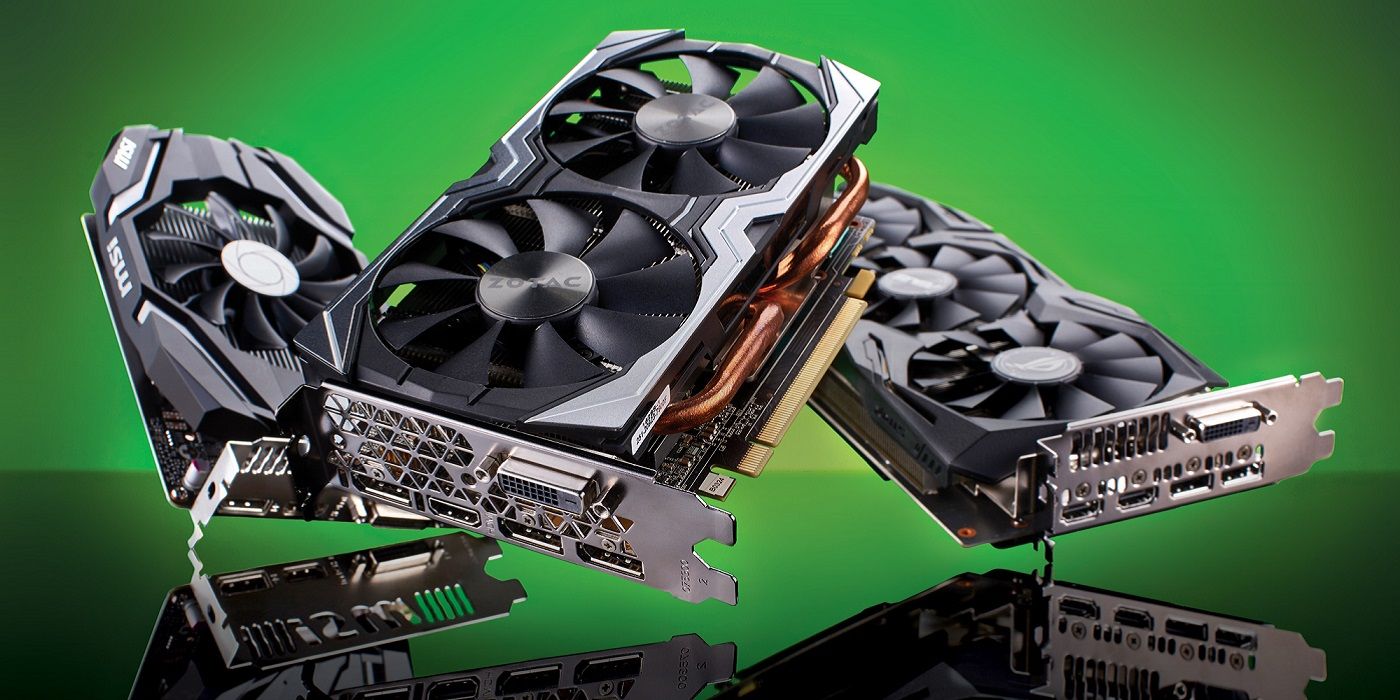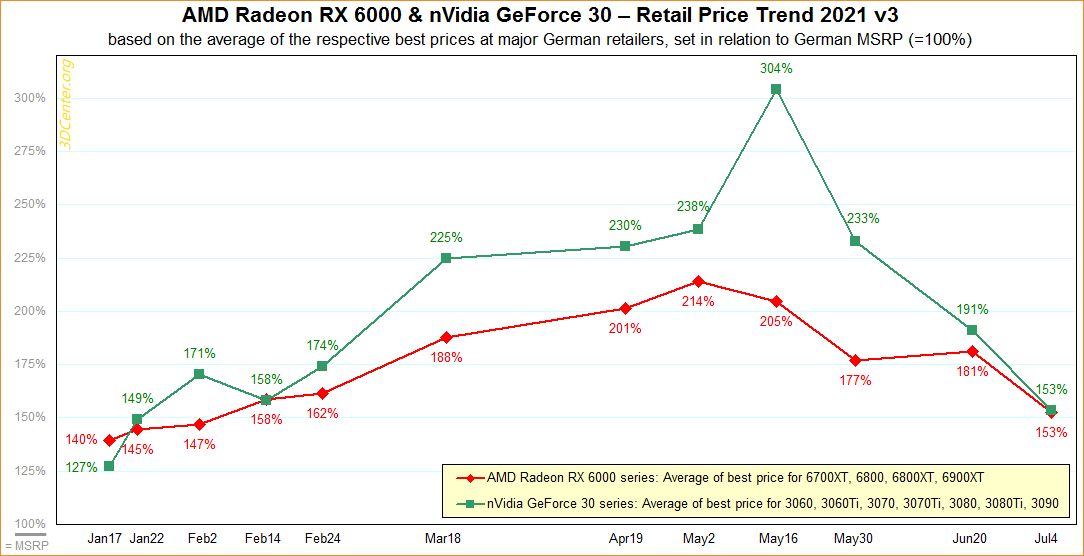
Since the end of 2020, PC enthusiasts and gamers in general have had difficulties getting hold of new consoles and hardware. The likes of Nintendo have struggled to keep up with demand for the Switch, and customers looking to purchase a new Nvidia or AMD graphics card have been sorely disappointed as prices for tech skyrocket and most leave empty-handed. However, it's entirely possible that there may be a sliver of hope as retail prices begin to drop in parts of the world.
A recent report shows that prices for Nvidia and AMD products have started dropping in Germany. While GPUs are still 53% more expensive than they ideally should be, a graph indicates that, while still costly, the price has come down to its lowest since February of this year. At its highest point, graphics cards were more than 200% higher than the recommended retail selling price, brought on largely by the deficit that's been raging on for some time now.
RELATED: Leaked Image Shows Possible Reveal for AMD RX 6600 XT Card
The source shows that such cards as the GeForce RTX 3080 have dropped to as low as €1,199, or around $1,415 US, which is still much higher than normal given that the manufacturer's recommended price is around €720, or $850 US. However, it has come down significantly since around May where customers would expect to pay upwards of $3,500 US, if not more. This is arguably a good sign of things to come.

It's worth reiterating that this is related to just the German market for now. There doesn't seem to be any price reductions on graphics cards for the US or other western markets. However, Nvidia recently announced it would increase production of its RTX 3060 card at the same time that prices were seen dropping in China. This suggests that there is a trend starting to happen, although quite slowly, and it's entirely possible that more countries will begin dropping prices for hardware, which could very well mean the deficit is finally on the mend.
This is only speculation at this stage, however. Tech companies such as IBM have warned that the current global shortages could on up until 2022, if not further. While that's not to say things won't start to get better sooner, it's still not certain what the market will look like over the coming weeks and months, and even if availability does increase, many products may still be at much higher prices. There is arguably room for cautious optimism, but many will likely have their ears to the ground to see whether prices drop in other parts of the world before making a move.
MORE: Comparing the Nvidia GeForce RTX 3080Ti Graphics Card to the 3080 and 3090
Source: VideoCardz

